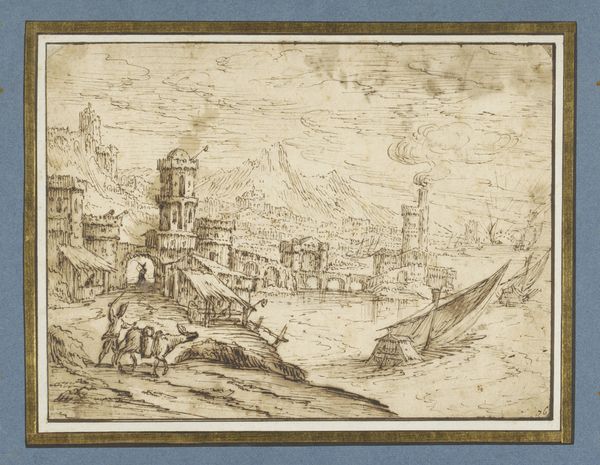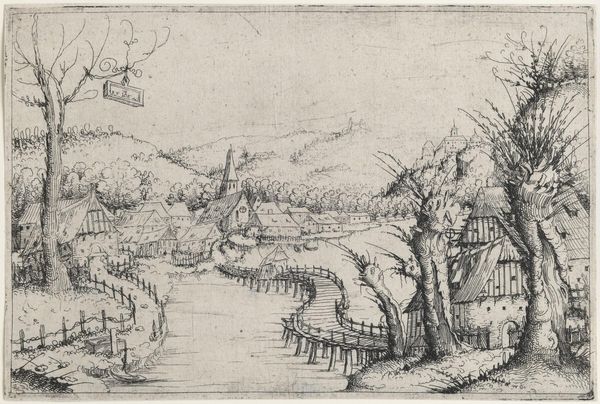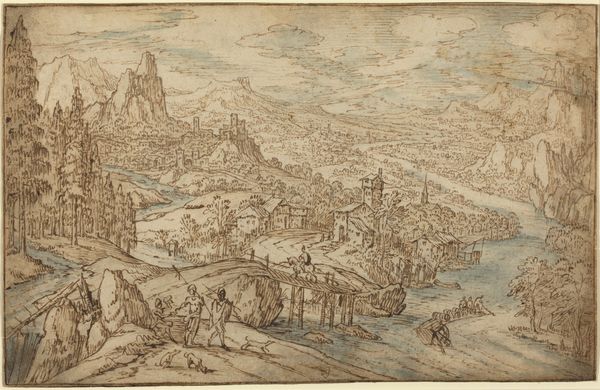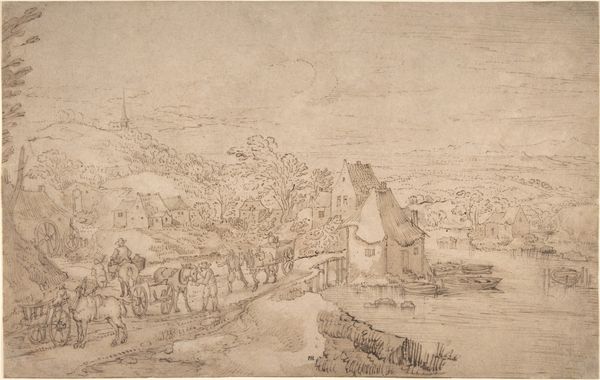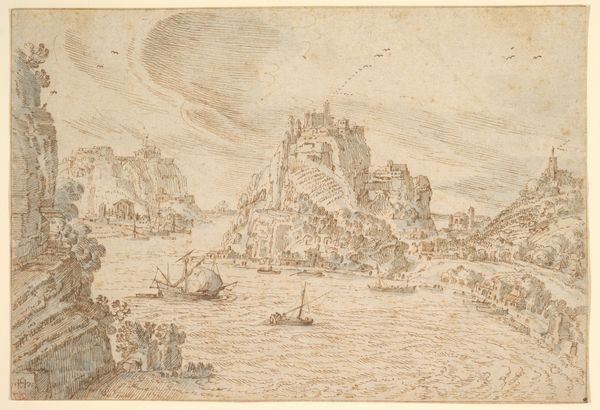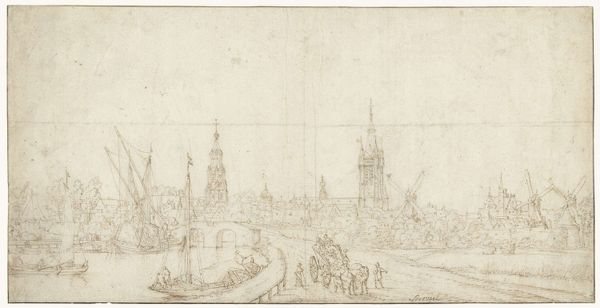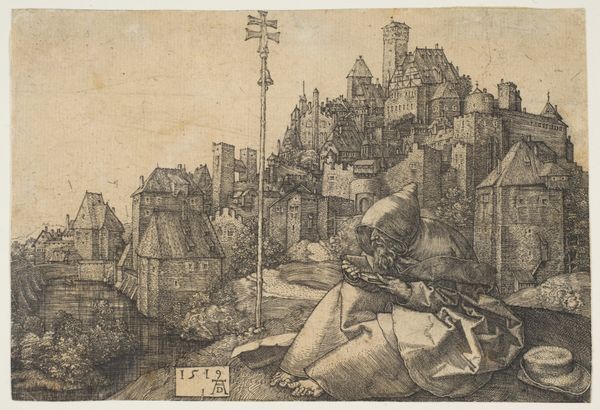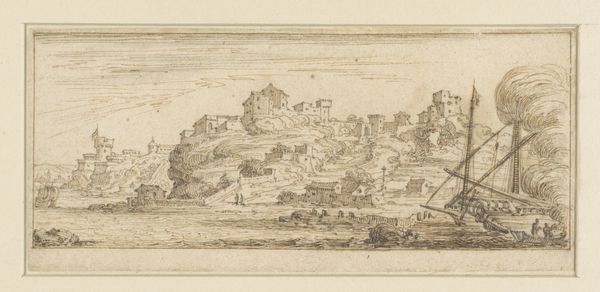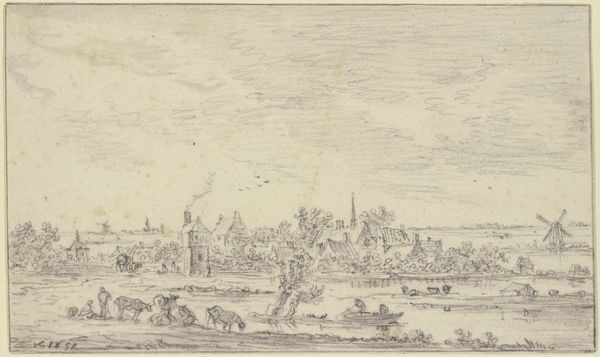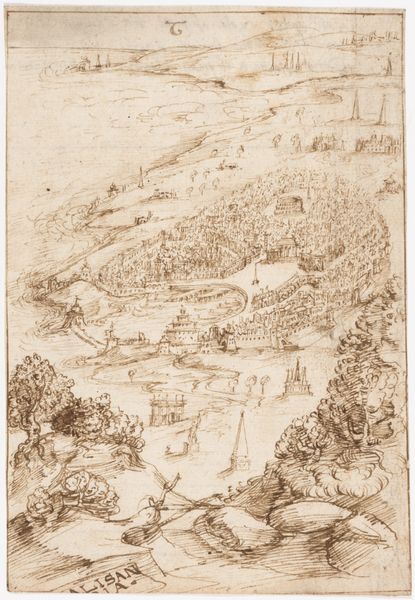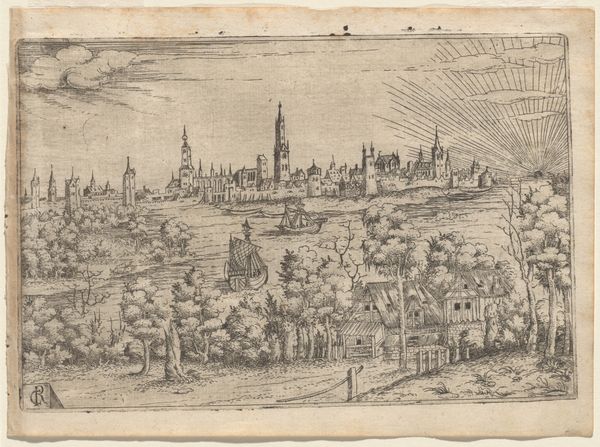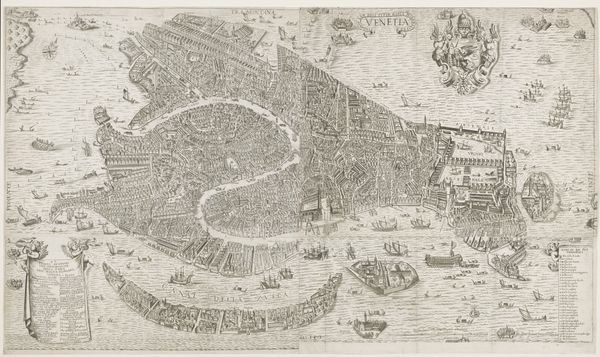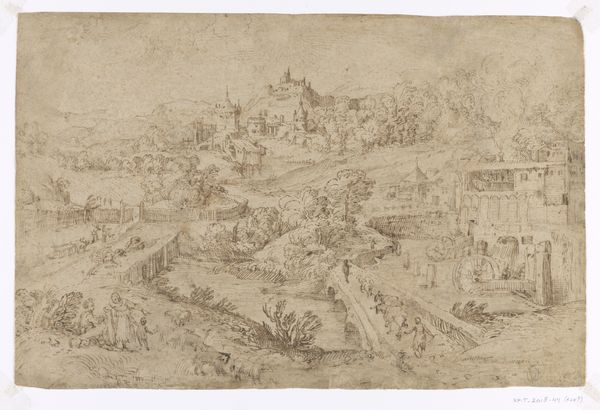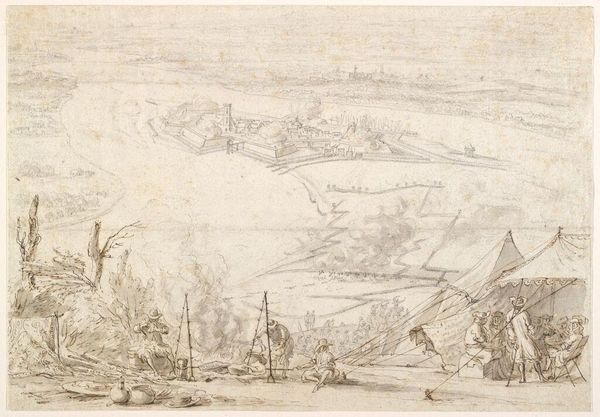
drawing, print, etching, ink, engraving
#
drawing
# print
#
etching
#
landscape
#
figuration
#
ink
#
line
#
northern-renaissance
#
engraving
Copyright: National Gallery of Art: CC0 1.0
Curator: There's a stillness to this piece. An almost dreamlike quality. Editor: Indeed. We're looking at "Landscape with a Town at Left," an etching in ink from 1549 by Augustin Hirschvogel. It’s a fascinating glimpse into how artists visualized the world during the Northern Renaissance. Curator: That cluster of wheat or tall grasses in the foreground—it immediately anchors the image, pulling the viewer into the scene. Is that a symbol I should be focusing on? Fertility, prosperity perhaps? Editor: Quite possibly. Grain often represents abundance and God's providence. Hirschvogel lived during a period of religious upheaval. These types of symbolic languages in landscapes could evoke spiritual longings or moral considerations. But landscapes at the time were also tied into the growth of cities, economic systems, and emerging scientific understandings of nature. Curator: So the work participates in the wider cultural negotiation of urban expansion, framing, even domesticating nature, with those organized rows of buildings? I noticed the church steeple, suggesting religion's presence and perhaps influence. Editor: Yes, exactly! The print participates in this broad moment. Hirschvogel and his contemporaries helped establish landscape as a significant genre. Its rise is tightly connected with social changes: urbanization, new trade routes, even the Reformation played a role in shaping artistic expression. This small etching is a reflection of that bigger picture. Curator: And looking at it, the detail is incredible for its size. Those finely etched lines almost seem to vibrate. Editor: The fineness of the line gives it an ethereal quality. But also I notice how the image doesn't invite viewers into its spaces. We remain outside, separated, watching, which has interesting symbolic resonances. Curator: Thank you, those observations added several layers of meaning for me. Editor: My pleasure. Thinking about how it reflects a time of immense change has broadened my understanding as well.
Comments
No comments
Be the first to comment and join the conversation on the ultimate creative platform.
